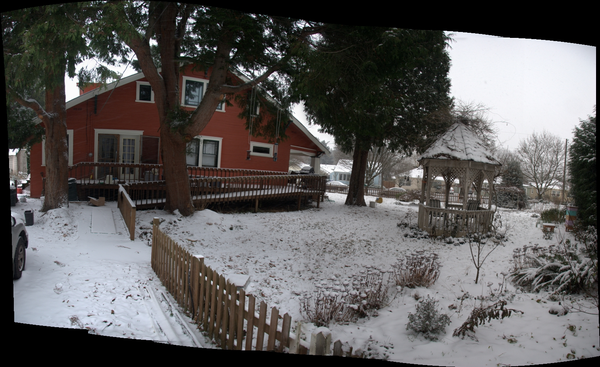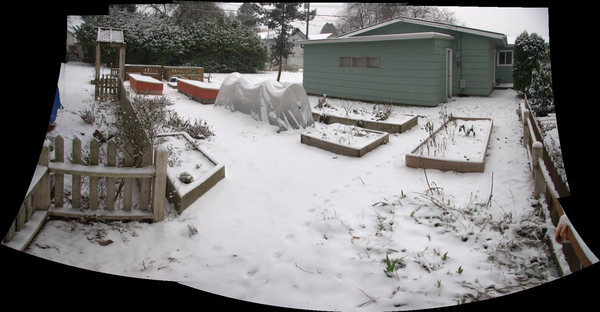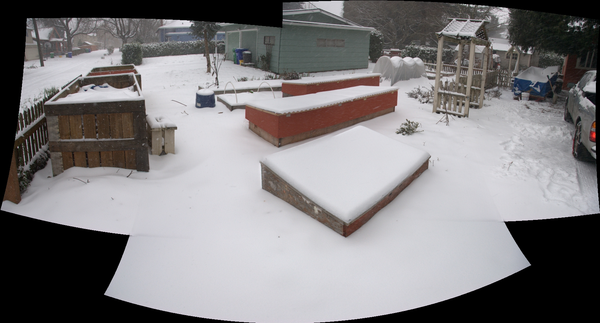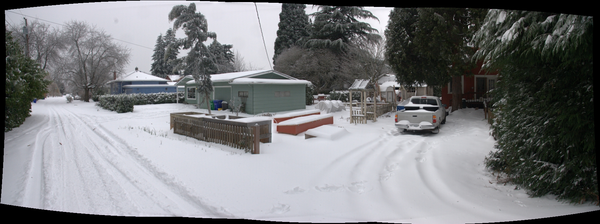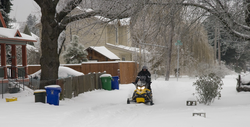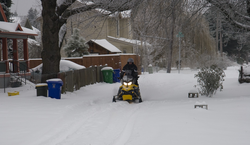I haven’t written a blog entry in a while and I’ve recently been questioned about this but two of the people that actually subscribe to my feed. This is out of probably 6 readers; I’m not sure that blogging is in my future as a career.
The main thing I’ve been up to is learning web programming. It’s recently come to my attention that this stuff has graduated to “real” programming. I’ll explain by way of analogy what I mean.
Remember the old versions of yahoo mail? MapQuest. Click and wait. Click and wait. Then Google came along with gmail and their maps.google site. I’m not talking about Google earth, but just the basic website. In both case, no real functionality was added. Yahoo had all of the functions of an email client. Folders, contact lists, and so on. Gmail didn’t add to that. Similarly, MapQuest could do everything you’d want. Enter and address and get directions. Zoom in and out and pan around too.
No one would dispute, however, that in both cases Google’s versions are better. A clearly superior product. Today’s yahoo mail interface is much better, but I’m comparing to what they had before Google embarrassed them.
The technologies behind these are what I’m referring to.
For the longest time, I resisted the internet craze, from the programmer perspective anyway. I love shopping online. I buy lots of stuff from Amazon or EBay. SteepAndCheap and Woot are both on my bookmarks. But technically, I wasn’t interest.
Well that’s changed.
About a month ago, I found a personal programming project that I’m using as a way to learn this internet stuff as well as, hopefully, something that will help me improve my German.
I speak German pretty well. I have relatives and friends that don’t speak English at all. I either speak German to them or we don’t communicate. The thing is, I don’t speak the language as well as I’d like and it’s mostly my vocabulary that’s weak. I took German in high school and college and that helped a lot with grammar; I learned some words too. (I had a small crush on one of my MIT teachers. Betina Brandt, I believe was her name. Beautiful Harvard grad student) I wish I could improve my fluency further.
Every time I go to visit my mom, I vow to read German while I’m in the US, kind of like New Years resolutions, I never follow through. The closest I’ve gotten was by watching the German TV channel during my time in Israel; they carried it on cable since there aren’t many local channels there. Also lots of German immigrants. This time, I decided to try reading magazines. Stern, Spiegel, and Focus all have online content and I can read their content online. Also, thanks to the wonders of BitTorrent, I can watch German movies. There are actually some good ones that Americans might recognize. Shultze Get the Blues. Run Lola Run. The Experiment. All pretty good movies.
But that doesn’t help me improve my vocabulary. To do that I’d have to get out the dictionary whenever I come across something I don’t understand. Who wants to do that?
Which brings me to my web programming project.
I’m in the process of writing a Firefox extension that will present to me a customize word list. When I bring up a webpage, it will extract all of the words that are used on that page. It’ll then find the definition online and combine them in a sidebar to assist me in reading the article.
At first glance, this would be really annoying. Webpages typically use many words that I already know. Blue, two, boy, tall, car. Who needs help with those? So to make it useful, I’ll add a capability to mark the words that I already know. My vision is that for that first X articles, I’ll be doing a lot of clicking. After a time, the list will be more useful, yielding a list that’s tailored to where ‘I’ am.
As I see it, this takes the “studying” out of language improvement. (Who wants to study?) Instead, it will take an activity I already do (read) and turn it into something more enjoyable. Instead of missing many of the nuances, I’ll be able to full appreciate them.
Here’s the flow that I’m thinking.
1) Go to an article
2) Read the vocabulary list. If the list is long, I’ll look at them by paragraph (a feature I’m planning on adding)
3) Read the article text. Hopefully, the definitions will linger in my head long enough to make it through a couple paragraphs. Since I’m reading straight through without stopping to look stuff up, and with a fuller understanding of the text, I’ll get more out of reading it.
That’s not really much different from how I read today, save for the part about looking stuff up and understanding everything I read. No flash cards, no sitting there repeating long lists of words. Just reading; something that I really like to do.
Over time, there will be definitions that I’ll see a bunch of times and eventually, I’ll remember some of them. Some words will sink in my brain quickly. Some will take longer.
Implementing this project has been very interesting. There are a bunch of things I’ve had to learn to make it happen that I’d never dealt with before and some that I haven’t seen in a while.
I’ll write about those next time.
